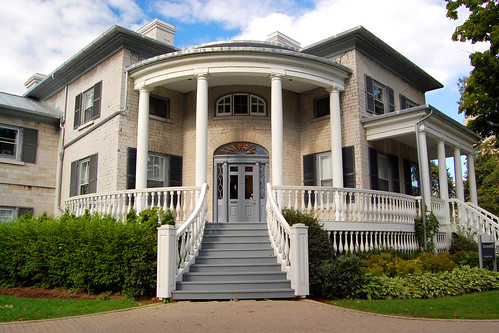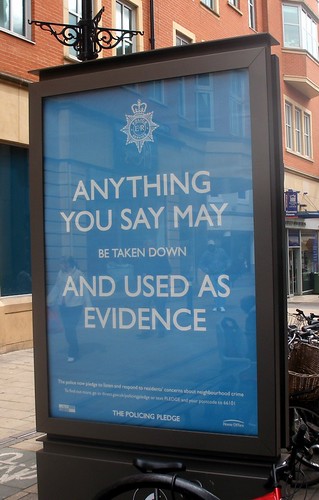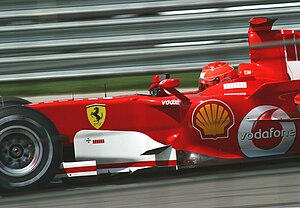 Update 6/14/2010: Sanity prevails (see below)
Update 6/14/2010: Sanity prevails (see below)Sometimes you don’t know what you’ve got until it’s gone. That couldn’t be more true than in the (apparent) demise of the Big 12 conference.
In the last few days, we’ve watched the University of Colorado walk out the door, followed shortly thereafter by the University of Nebraska. Ponder that for a moment. Perhaps even sigh a little with the thought.
Now, a reality check: let’s not forget – it’s Colorado and Nebraska, folks! The bottom line is that we’re talking about two football programs that have seen their best days in the rear view mirror. Winning the Big 12 North is not exactly epic these days. Consider that we’re talking about 2 television markets that really aren’t all that big a deal. We’re talking about two men’s (and women’s) basketball programs that are, well, worse than their football programs. And academically? I am not convinced that the academic brain trust of the Big 12 conference resided in Boulder or Lincoln. But I may be wrong.
Does anyone really care that Colorado and Nebraska have bid the Big 12 an acrimonious farewell? The real question is this: has chaos really discovered the Big 12, or do bigger and better things await the conference?
 The Rolling Stones once said that time is on my side. And the Grateful Dead made note, many years ago, of “what a long strange trip it’s been”. And somewhere in between the two reside my thoughts of the past few days.
The Rolling Stones once said that time is on my side. And the Grateful Dead made note, many years ago, of “what a long strange trip it’s been”. And somewhere in between the two reside my thoughts of the past few days.
It’s been a recurrent theme recently, that thing called “the passage of time”. Two distinct conversations this week brought this back to me in full, living color. And some very fond memories along with them.
In the first, I had made a comment about how quickly the year 2010 was passing. Suddenly, I was thinking back to my younger days, telling my mother that it seemed like everything went by so slowly, that it was such a long time between birthdays. She told me that as I got older, time would go by faster and faster every day. I remember thinking that hey, she’s just an adult, what does she know? Of course, that’s the mindset when you’re younger. And now, I realize how prophetic her statement was. Suddenly, you turn around and another year is gone. Then five more. Then another decade.
In the second, as I was teaching a class on clinical reasoning this week, I made the remark that it’s been 22 years since I graduated from Queen’s University. It seems like it was yesterday – though the calendar would remind me that it’s been 22 years ago last month.
The still photo snapshot in my mind that is graduation suddenly fast forwards to a couple of years ago when I found myself celebrating my 20 year university reunion. Ah that wonderful time machine that lives inside our minds …
 The phrase “evidence-based medicine” is pervasive in health care now. As the phrase becomes more and more common, there seems to be a growing chasm between those that utilize the scientific method, and those that don’t. It’s creating a rather intriguing problem for patients and practitioners.
The phrase “evidence-based medicine” is pervasive in health care now. As the phrase becomes more and more common, there seems to be a growing chasm between those that utilize the scientific method, and those that don’t. It’s creating a rather intriguing problem for patients and practitioners.
In one corner, we have those that are utilizing evidence-based strategies in the care of the patient. Using the scientific method doesn’t eliminate what many call “the art of health care”. The clinician still has to have clinical reasoning skills (which are deeply rooted in the scientific method) and the ability to use their communication skills effectively to establish rapport with the patient.
In the other corner, we have the “gurus”. These are the people that will tell fellow providers that science has yet to explain what they do and besides, it doesn’t matter anyways. Experience is critical, and there are plenty of stunning anecdotal results that make it all the more obvious. The “gurus” are the ones armed with methods that have minimal scientific plausibility as a foundation. And when speaking to other practitioners eager to learn their “methods”, they will be the same people that will proclaim that one could be so lucky to attain their level of understanding, unless of course you want to take their 3 week course and pay a few thousand dollars to do so.
And though we might have once thought that the gurus were exclusively found amongst practitioners of “complementary and alternative medicine”, they are now rampant amongst “mainstream” health care providers (such as physicians and physical therapists).
But here’s the problem: you can’t live in a world in which you selectively choose when you want to live with evidence and science, and when you don’t. You cannot ride the coat tails of science while advocating for the cult of personality, mysticism, or the power of the placebo.
So do I need evidence? And why does it matter anyways?
 Tuesday May 25th was a crazy day. I was going through my normal morning routine, stepped outside to pick up the newspaper, opened it up, and there was the news. The headline on the front page said it all.
Tuesday May 25th was a crazy day. I was going through my normal morning routine, stepped outside to pick up the newspaper, opened it up, and there was the news. The headline on the front page said it all.
I can’t remember a time when I’ve ever seen a Ferrari Formula One car on the front page of the Austin American-Statesman. Ever.
I think my jaw hit the floor before reality settled in.
On Tuesday, it was officially announced that Austin is the new home of the US Grand Prix. Formula One is coming in 2012. There is a 10 year contract. And consider me excited beyond all belief.
I may currently be in the minority. Though it has made the news, including front page headlines, my sense is that it’s really a non-entity thus far amongst most people. I haven’t heard much talk of it. Apparently I am the only kid running around in this candy store, or one of but a few.
For those who have yet to make sense of this, allow me to explain. In simple terms, this is a big deal for Austin, for the US, and for the global sports community. And here’s why.
 Imagine this: more doping claims in the world of cycling. At this point, there are three things we can count on in life – death, taxes, and allegations of drug use in cycling.
Imagine this: more doping claims in the world of cycling. At this point, there are three things we can count on in life – death, taxes, and allegations of drug use in cycling. The question has reared it’s ugly head once again: has Lance Armstrong been cheating all these years? Floyd Landis is the latest in a long line of people to point the finger at him. But before you even think of passing judgment, there are some rather important pieces of this puzzle that lend a great deal of context to what is becoming a made-for-TV-reality-show.Or a circus.Or both.
I’ll be the first to profess openly that I am a fan of cycling. I was introduced to it in my youth, and watching the Tour de France on TV has been an annual extravaganza that closely resembles March Madness in it’s ability to draw my attention. So it’s safe to say that I come into this discussion with a love of cycling.
I think it’s also safe to say that when discussing the issue of doping in cycling (or any other sport), we need to consider the context of the debate, the personalities involved, and the motives underlying the debate. We need to utilize the sports sciences research, and we need to examine our own belief systems. More on that later.
But back to Lance Armstrong. Over the years, Armstrong has faced accusations from a number of people that have been close to him in the cycling community.The most recent, Landis, has a rather intriguing and perhaps sordid tale. Here’s the storyline:
 We are in a constant quest for power and for solutions to our problems. And far too often, we are caught looking outside of ourselves for the answers to those problems.
We are in a constant quest for power and for solutions to our problems. And far too often, we are caught looking outside of ourselves for the answers to those problems.
It happens in so many different facets of our lives. Take, for example, the war in Iraq. We now know that the issue of weapons of mass destruction was, well, a non-issue. I think it’s safe to say that it was an issue of oil. So we start looking beyond our borders, to the Middle East, to find a solution. We then feel the need to have a presence there in order to have greater access to oil. Sadly, the problem is one within our own borders, and within ourselves. How? We have a problem of energy consumption. Use less oil, need less oil from elsewhere. Pretty simple.
But of course, that would require that we seek the answer that lies within.
It expands to many other areas of our world. It could be a teacher, a parent, or a medical professional. Instead of stating “I gave you some homework to do, so why didn’t you do it?”, would we be better off asking ourselves “what did I not do to get you to comprehend the importance and value-added benefit of that homework?”.
We even go so far as to seek answers outside of our realm. We look for spiritual guidance from beyond. We look to gurus (and the Cult Of Personality) who compel us to believe that they in fact have all the answers. We look to mystics who tell us that if we can only attain their level of spirituality or understanding, we might just be able to attain the level of knowing that they have and that we so deeply desire.
But could the power lie within each and every one of us, right at this very moment?
 Not so long ago, in an infomercial or two, we were provided some of the finest observations of the state of the union – by none other than Ross Perot.
Not so long ago, in an infomercial or two, we were provided some of the finest observations of the state of the union – by none other than Ross Perot. For those who have forgotten, while using his pointer and hand-held charts, he resolutely stated that “In America, we have a problem”. He may not have been talking about health care specifically, but he certainly could have been.
Consumers have somehow been lead down the garden path in the discussion of quality, cost, and access in health care (including allied health professions such as physical therapy, chiropractic, and alternative therapies). In any business realm that we can think of, our task is to find the greatest quality of product or service at either an affordable price, or a price that we feel is directly related to the quality of the service. But in health care, the system is currently driven by some very anti-consumer principles.
As Dick Cavett once noted, "As long as people will accept crap, it will be financially profitable to dispense it". Health care is no different. So what are the underlying mechanisms and motivators that are currently working against the health care consumer?
 "Running Injuries: Etiology And Recovery- Based Treatment" (co-author Bridget Clark, PT) appears in the third edition and fourth editions of "Clinical Orthopaedic Rehabilitation: A Team Approach" by Charles Giangarra, MD and Robert C. Manske, PT.
"Running Injuries: Etiology And Recovery- Based Treatment" (co-author Bridget Clark, PT) appears in the third edition and fourth editions of "Clinical Orthopaedic Rehabilitation: A Team Approach" by Charles Giangarra, MD and Robert C. Manske, PT.
 Allan Besselink, PT, DPT, Ph.D., Dip.MDT has a unique voice in the world of sports, education, and health care. Read more about Allan here.
Allan Besselink, PT, DPT, Ph.D., Dip.MDT has a unique voice in the world of sports, education, and health care. Read more about Allan here.
 Top 5 finalist in three categories: "Best Overall Blog", "Best PT Blog" and "Best Advocacy Blog".
Top 5 finalist in three categories: "Best Overall Blog", "Best PT Blog" and "Best Advocacy Blog".